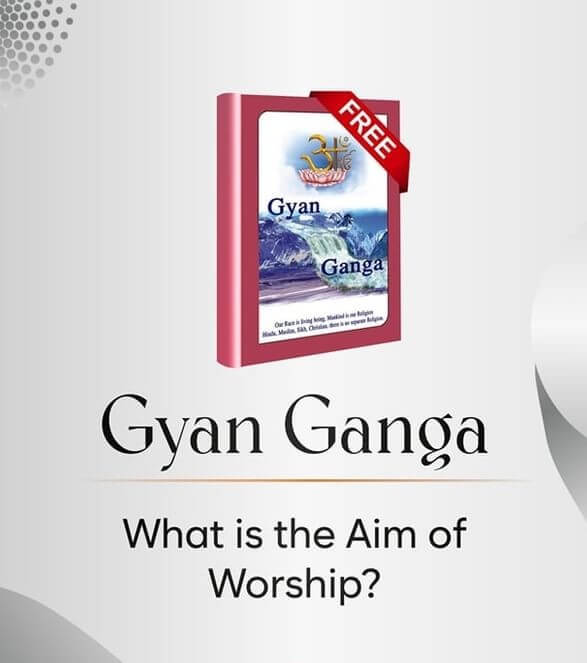Who are the parents of Brahma, Vishnu, and Shiv?
Help & Information / Who are the parents of Brahma, Vishnu, and Shiv?
Who are the parents of Brahma, Vishnu, and Shiv?
How were Brahma, Vishnu, and Shiv born?
According to the sacred text Gyan Ganga, Brahma, Vishnu, and Shiv, often regarded as the creators, preservers, and destroyers of the universe, are not self-born or eternal. They have parents, contrary to popular belief. Their mother is Goddess Durga (also known as Prakriti or Ashtangi), and their father is Kaal Brahm (also known as Jyoti Niranjan).
Mother and Father of Brahma, Vishnu and Shiv
The text explains that Kaal Brahm, through a union with Durga, gave birth to the three gods who represent the three gunas (qualities) in creation:
- Brahma represents Rajogun (the quality of passion and creation),
- Vishnu represents Satogun (the quality of preservation and goodness),
- Shiv represents Tamogun (the quality of destruction).
In Gyan Ganga, it is clarified that Durga and Kaal Brahm (Jyoti Niranjan) are the biological parents of Brahma, Vishnu, and Shiv. Kaal Brahm, also referred to as the ruler of 21 universes, is responsible for the governance of these deities, who operate within the domain of these three qualities to manage the cycle of creation, preservation, and destruction.
Evidence in Scriptures
This revelation challenges the widely accepted view that Brahma, Vishnu, and Shiv are eternal and without origin, emphasizing instead their dependence on a higher divine power for their existence. The text draws on various Puranas and scriptures, such as the Shrimad Devi Bhagwat Puran and the Shiv Puran, to support this assertion. In the Shrimad Devi Bhagwat Puran, for instance, it is clearly mentioned that Brahma, Vishnu, and Shiv were born from Goddess Durga, with Kaal Brahm as their father.
Conclusion
This understanding of the parentage of Brahma, Vishnu, and Shiv underlines the hierarchical structure in the divine realm, where even the most powerful gods are subservient to a higher cosmic authority.
Who is the Husband of Goddess Durga →
